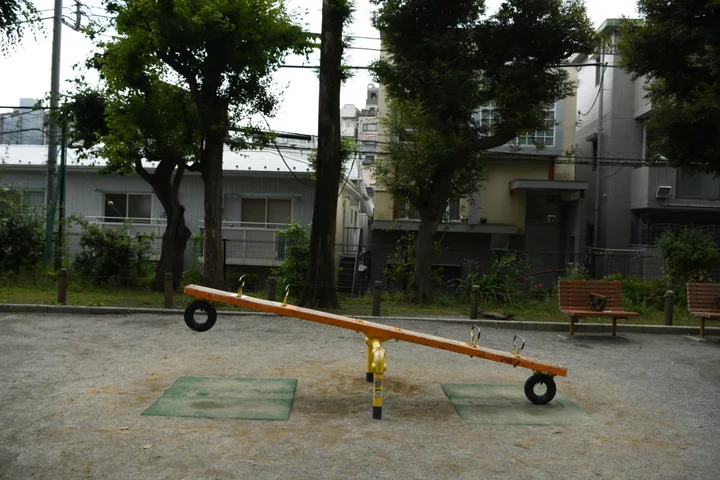The number of Japanese fell in all the country’s 47 prefectures for the first time since the data has been tracked, according to a study released by the government, even as the number of foreign residents inched up to a record.
The population of Japanese nationals shrank by more than 800,000 to 122.4 million over the year to Jan. 1, in the latest reminder of a demographic crisis Prime Minister Fumio Kishida has said threatens the country’s ability to function. The data, based on local government residents’ records, was released Wednesday by the Ministry of Internal Affairs and Communications.
Kishida has pledged policies “on a different dimension” in a bid to grasp what he calls a “last chance” to prop up the dwindling birthrate. An aging and shrinking population means labor shortages and fewer taxpayers to support the growing ranks of the elderly.
“The situation is dire and proves government policies to halt the birthrate have fallen short,” said Hideo Kumano, an economist at Dai-Ichi Life Research Institute. “The data shows there’s a limit on what can be achieved by easing the burden of raising kids with subsidies. What’s important is to secure employment opportunities in the regions, too.”
Last year, the number of children born nationwide fell under 800,000 for the first time since records began in 1899. The population of Japanese nationals has been falling continuously for 14 years, and for the first time this included the southern prefecture of Okinawa, historically known for a high birthrate.
Kishida’s promised to spend about ¥3.5 trillion ($24.8 billion) on measures to increase the birthrate, without fully explaining how this will be funded. Among the policies is an expansion of cash handouts to families with children, regardless of parental income. Experts have warned the policy package fails to tackle the root causes of the declining birthrate, such as a lack of stable job prospects.
While the number of registered foreign residents ticked up by about 300,000 to almost 3 million, it was not enough to make up for the shortfall in Japanese nationals. The overall population shrank by 0.4%.
“If the situation remains the same, Japan will fall into a negative spiral of letting its economic size shrink over the long-term,” Kumano said.
“In the short-term, the problem is shortages of labor. Japan will have to raise wages for foreign workers so that they will be encouraged to come here despite the weak yen,” he said.
--With assistance from Keiko Ujikane.

